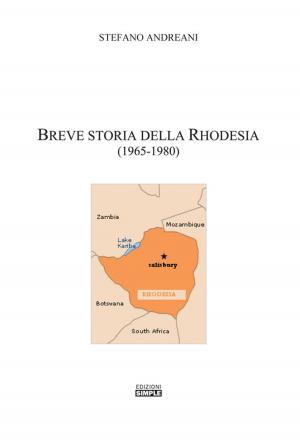| Author: | Peter Richard Dreyer | ISBN: | 9780999288818 |
| Publisher: | Hardware River Press | Publication: | November 15, 2017 |
| Imprint: | Hardware River Press | Language: | English |
| Author: | Peter Richard Dreyer |
| ISBN: | 9780999288818 |
| Publisher: | Hardware River Press |
| Publication: | November 15, 2017 |
| Imprint: | Hardware River Press |
| Language: | English |
Isacq is fiction based on the early life of the author's direct ancestor Johannes Augustinus Dreyer (1689–1759). Commencing with a long flashback from the Cape of Good Hope in 1738, it novelizes his adventures in the five years from 1708, when he was a student at the University of Rostock, to 1713, when he signed on with the Dutch East India Company as an adelbors, or midshipman, under the Catalan alias Isacq d’Algué (“of Alghero”). He would go by this alias for many years at the Cape, until he admitted his real identity in his last will and testament and asked his children to resume using the surname Dreyer.
Isacq fights a fatal duel in Swedish Wismar, flees to London, enters the English secret service under the spymaster-novelist Daniel Defoe, is sent as a secret agent to Herrenhausen, the palace at Hannover of the Elector Georg Ludwig (the future King George I of England), where he is employed by the philosopher Leibniz and imagines himself foiling a Jacobite plot to murder the Elector and his son. He falls in love, ships out on a Dutch vessel in the War of the Spanish Succession, is captured by Algerine pirates in the Mediterranean, escapes when their xebec is sunk, and travels across Sardinia to the Catalan city of Alghero, which has become an Allied base supplying the troops fighting in Spain.
On November 8, 1713, the man calling himself Isacq d’Algué arrived at the Cape, where he would marry and father six children, from whom many thousands of South Africans alive today are descended, the author of this novel among them.
Isacq is fiction based on the early life of the author's direct ancestor Johannes Augustinus Dreyer (1689–1759). Commencing with a long flashback from the Cape of Good Hope in 1738, it novelizes his adventures in the five years from 1708, when he was a student at the University of Rostock, to 1713, when he signed on with the Dutch East India Company as an adelbors, or midshipman, under the Catalan alias Isacq d’Algué (“of Alghero”). He would go by this alias for many years at the Cape, until he admitted his real identity in his last will and testament and asked his children to resume using the surname Dreyer.
Isacq fights a fatal duel in Swedish Wismar, flees to London, enters the English secret service under the spymaster-novelist Daniel Defoe, is sent as a secret agent to Herrenhausen, the palace at Hannover of the Elector Georg Ludwig (the future King George I of England), where he is employed by the philosopher Leibniz and imagines himself foiling a Jacobite plot to murder the Elector and his son. He falls in love, ships out on a Dutch vessel in the War of the Spanish Succession, is captured by Algerine pirates in the Mediterranean, escapes when their xebec is sunk, and travels across Sardinia to the Catalan city of Alghero, which has become an Allied base supplying the troops fighting in Spain.
On November 8, 1713, the man calling himself Isacq d’Algué arrived at the Cape, where he would marry and father six children, from whom many thousands of South Africans alive today are descended, the author of this novel among them.















